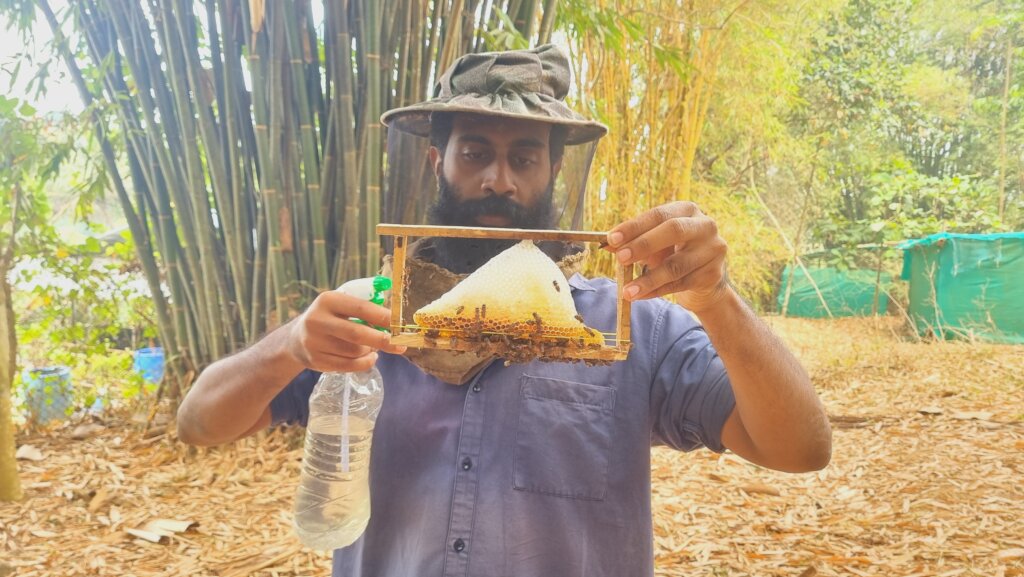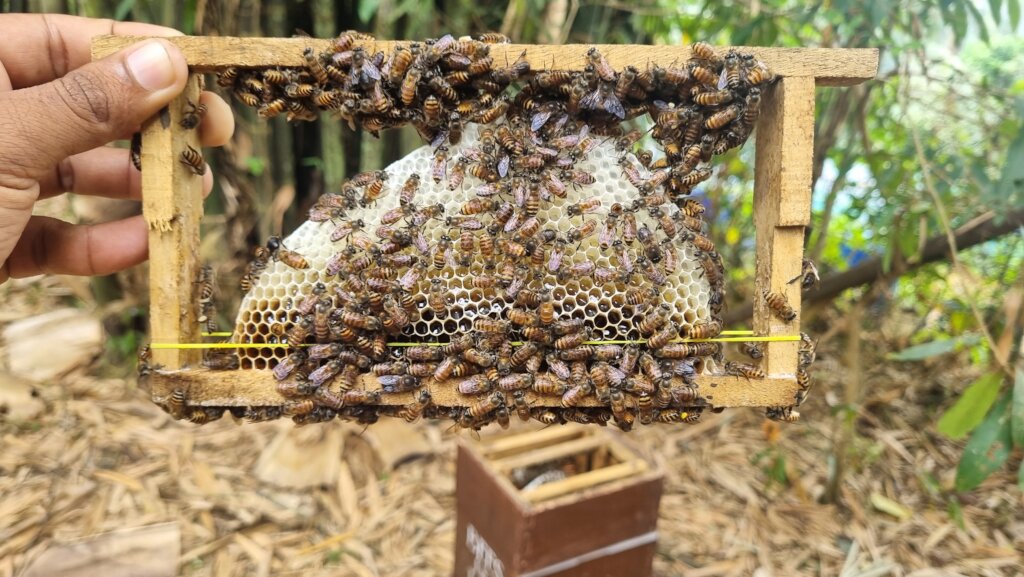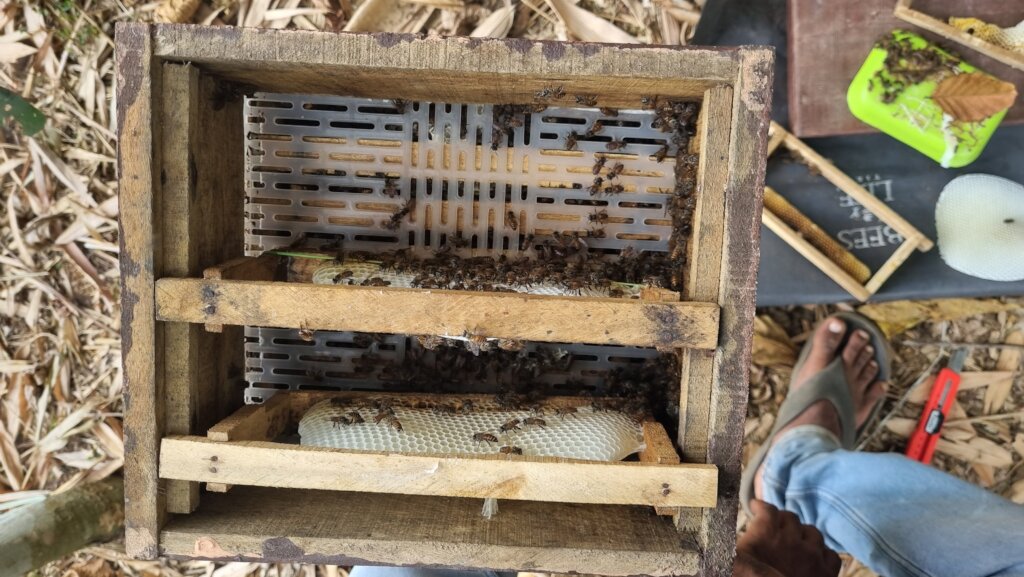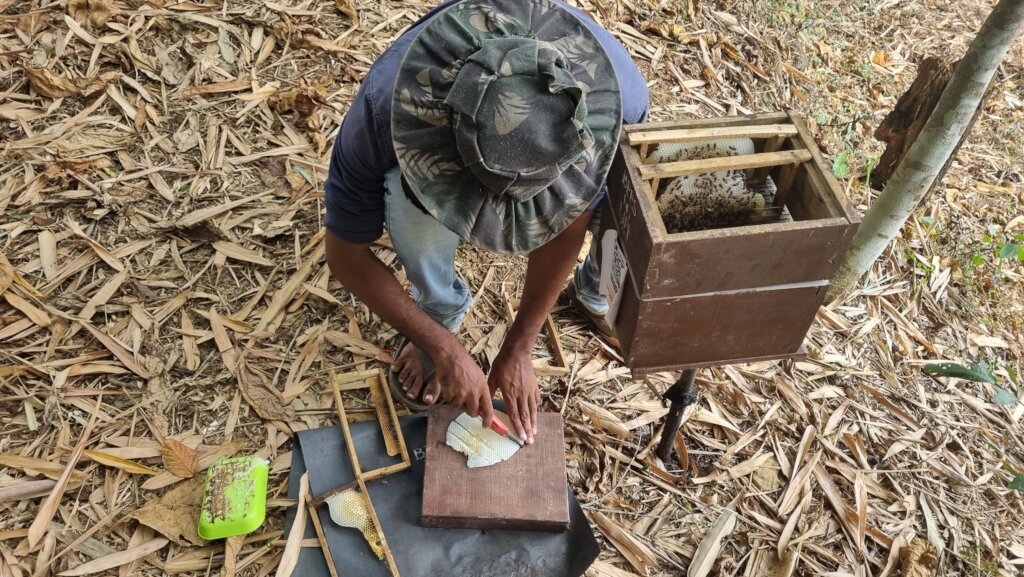By Sarath Babu | Project Leader
Thanks to the generous support of our donors, our beekeeping initiative has reached a significant stage. The colony has grown strong and self-sufficient, allowing us to transition from supplemental feeding to natural foraging. This marks a crucial shift, as the bees are now actively collecting nectar from surrounding flowers, reinforcing their role in local pollination and ecosystem balance.
With the super chamber now in place, the hive is entering the honey production phase. This period is vital, as it ensures surplus honey storage while maintaining the health of the colony. Regular hive inspections, monitoring of nectar flow, and ensuring optimal conditions for honey maturation are key activities during this time. Our team is also focusing on maintaining hive hygiene, managing pest threats, and ensuring the bees have access to diverse floral resources for high-quality honey production.
This stage is not just about honey collection—it strengthens the entire ecological cycle. Increased pollination supports local biodiversity, enhances crop yields for farmers, and contributes to a sustainable livelihood model for beekeepers. By fostering responsible beekeeping practices, we are creating a long-term impact on both environmental conservation and community development.
At the same time, the demand for pure, unadulterated honey is rising as consumers seek healthier and more natural alternatives to processed sweeteners. By ensuring ethical and sustainable honey production, we are not only supporting local ecosystems but also providing high-quality, chemical-free honey to health-conscious consumers. This initiative bridges the gap between responsible apiculture and the growing need for pure honey in the market.
As part of our community outreach initiatives, we are also empowering destitute women and cancer patients by providing apiaries and training them in hive maintenance and honey collection—completely free of cost. This initiative offers them a sustainable source of income while fostering self-reliance and dignity through meaningful work in apiculture.
Your support continues to be the backbone of this initiative. Every contribution helps sustain these efforts, ensuring that we can expand responsible apiculture and promote ecological harmony. Thank you for being a part of this journey!
"Bees do more than make honey; they sustain life itself. Every drop of honey harvested is a testament to their resilience and the harmony of nature."
Project reports on GlobalGiving are posted directly to globalgiving.org by Project Leaders as they are completed, generally every 3-4 months. To protect the integrity of these documents, GlobalGiving does not alter them; therefore you may find some language or formatting issues.
If you donate to this project or have donated to this project, you can receive an email when this project posts a report. You can also subscribe for reports without donating.
Support this important cause by creating a personalized fundraising page.
Start a Fundraiser


